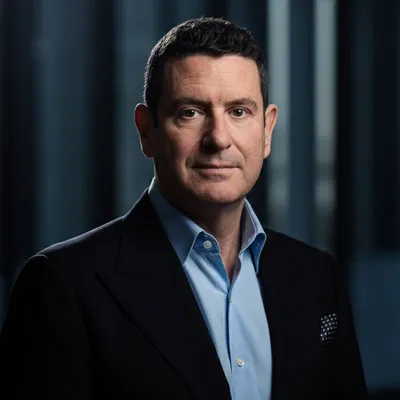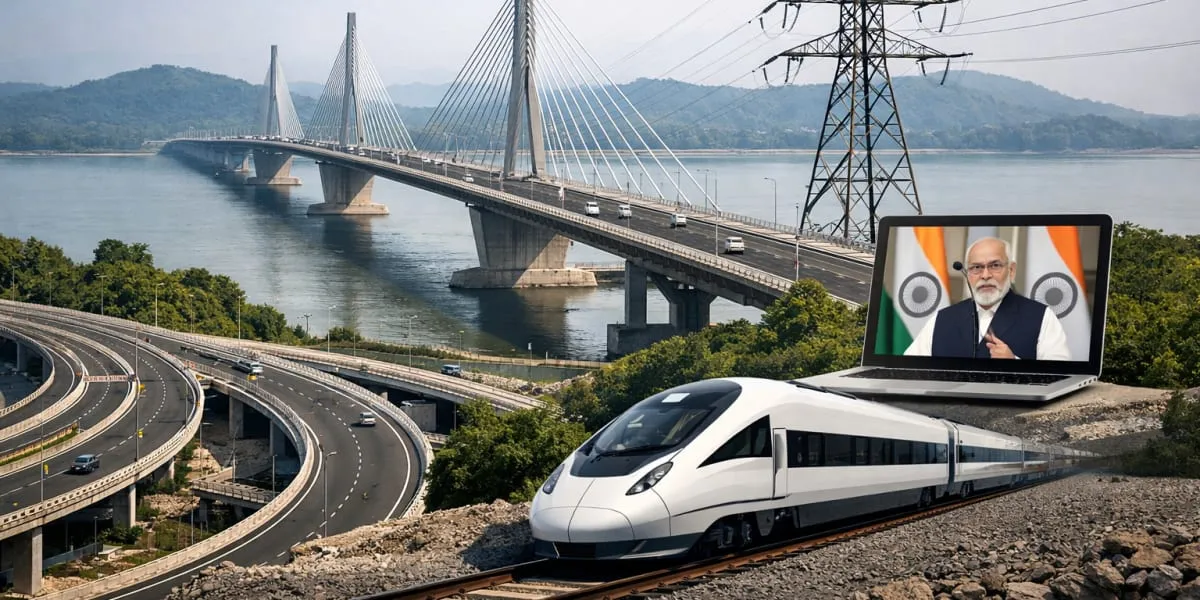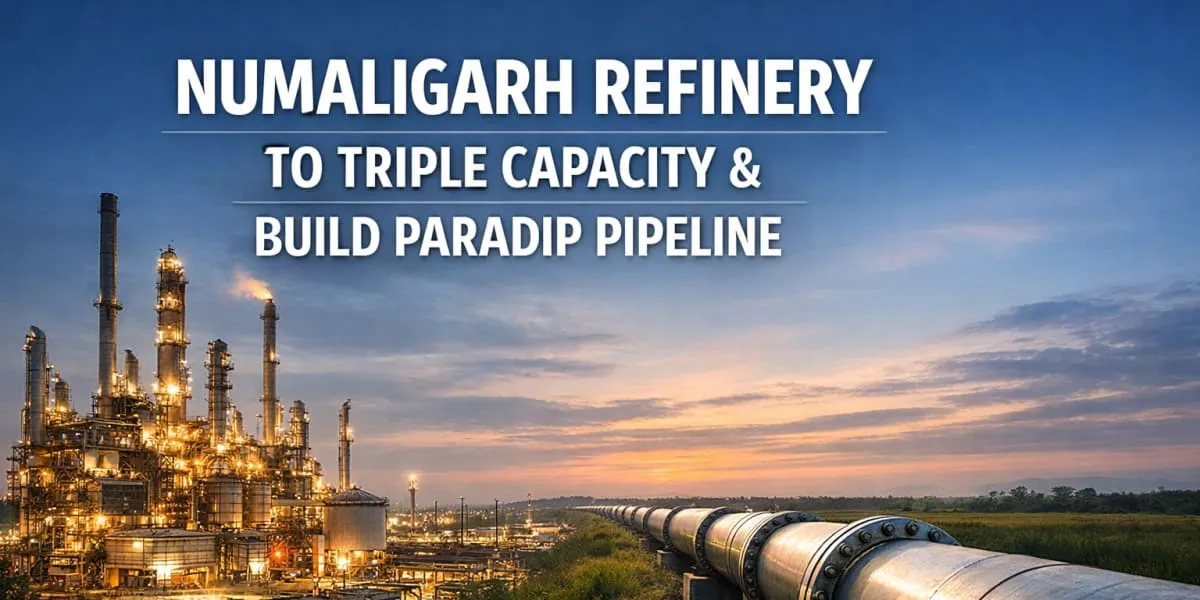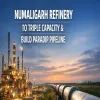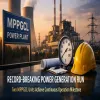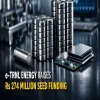Mili Majumdar
Managing Director
GBCI
“Real estate is capable of generating positive social impact through the “greening” of public spaces, social housing, and care centres, and
the construction of
green buildings.”
— Mili Majumdar
Over the past couple of years, having an Environmental, Social and Governance (ESG) strategy and reporting mechanism has become increasingly important for every business that intends to thrive, or even survive, in today’s world. Financial figures alone are no longer enough; they need to be accompanied by an ESG narrative. The bigger the industry, the bigger its responsibility towards the environment and all those it impacts. The built environment accounts for almost 40 per cent of the world’s greenhouse gas emissions, arising from the materials used to build cities and infrastructure, and the energy required to operate them.
With great growth potential comes great responsibility
According to a report by Frost & Sullivan, the real estate segment is expected to account for 13 per cent of the GDP by the year 2030. Smart cities, industrial corridors, railways, mega ports, and commercial
spaces loom large on the horizon, with major investments planned
for infrastructure development.
To minimise the environmental impact of all these projects, we must transform how buildings
and infrastructure are built and operated. Net-zero, energy-certified structures will be crucial to mitigating the effects of climate change. Real estate developers should shoulder the responsibility of ensuring sustainable construction and de-risking ESG issues. With almost 70 per cent of India's 2030 urban infrastructure yet to be built, there is enough time to go green and embark on a green real
estate revolution.
Real estate is capable of generating positive social impact through the “greening” of public spaces, social housing, care centres, and the construction of green buildings. Both involve sustainably sourced and environmentally-friendly construction materials; well-lit, well-ventilated spaces; energy-efficient fixtures and appliances; efficient water and waste management systems; energy from renewable sources such as rooftop solar panels; and technologies for measuring performance on predetermined sustainability metrics. The “social” tenet of ESG should cover tenants, residents, and occupants of all kinds of buildings, as well as the communities that are directly or indirectly impacted by the company’s operations. Real estate firms that serve all these stakeholders in a responsible and ethical manner will earn a
good reputation and preference among consumers.
Indeed, sustainability has emerged as a key consideration for consumers in many of their purchase decisions, including their choice of home. A survey by Lithium Urban Technologies revealed that 69 per cent of respondents had shifted towards a more sustainable way of living. Homebuyers are, for instance, showing a preference for developers who have a strong ESG proposition and offer green housing or LEED-certified projects.
How green certifications like LEED can help
For long, LEED has served as a framework for creating healthy, resilient, and sustainable buildings, connecting the dots between design, construction, and operations. Today, as governments and industries seek ways to achieve sustainable development while reducing environmental impact, LEED assumes great importance owing to its ability to guide and accelerate efforts towards reducing greenhouse gas emissions, optimising the use of energy and water, diverting waste, and promoting the use of healthy materials in buildings. Moreover, the latest version of the LEED certification, LEED v4.1, promotes socially responsible practices with its Social Equity Pilot Credits.
The element of inclusivity and social impact embedded in this certification is highly significant today, amid the strong focus on
ESG initiatives and reporting.
Structures as diverse and different from each other as heritage buildings and power distribution stations can be brought into the ambit of sustainability. The LEED certification of CESC House and CESC’s Park Circus distribution station in Kolkata attest to
this fact.
Many of India’s leading real estate groups have worked towards LEED certifications as a part of their efforts to enhance the sustainability quotient of their business operations and properties. Five of Embassy REIT’s eight assets in India are LEED-certified. The certifications have helped the company align with Sustainable Development Goal 9 outlined by the United Nations. Many of the ITC Group’s hotels, factories, and office complexes have been awarded LEED certifications. ITC Windsor in Bengaluru, ITC Grand Chola in Chennai, and ITC Gardenia in Bengaluru each have more than
94 per cent of their electricity needs met through renewable energy sources. Cumulatively, ITC has “greened” more than 950,000 acre generating 173 million people days of employment, thus enhancing its ESG credentials. Most projects implemented by DLF India are LEED Platinum-certified to ensure minimal environmental impact.
K Raheja Corp is yet another company that is focused strongly on sustainability. The green buildings developed by the company feature varying combinations of environment-friendly concepts such as Zero Energy and Zero Water concepts; solar PV panels; dry waste composting; double-glazed glass windows; replanting; low-emitting materials; sewage treatment; rainwater harvesting; and more.
Investor interest and compliance mandates will drive ESG adoption and green investments
There is data to suggest that companies that integrate ESG into their processes and value chains are better equipped to mitigate risks arising from climate change and poor governance. Moreover, it helps them improve operational efficiency, yields significant cost reductions, and enables asset optimisation.
Last year, CRISIL published the ESG ratings for 225 Indian companies from 18 sectors. It emerged that the companies with the highest ESG score within their sector had outperformed the sector average
by nearly nine points.
Performance and resilience of this kind tend to be rewarded with higher valuations by investors. Indeed, more and more investors have begun embedding ESG considerations into every stage of the property lifecycle, from due diligence to acquisitions, and from leasing to asset management.
Fund managers today prefer to invest in companies that have high ESG scores. Having a strong ESG focus thus makes good financial sense for real estate players.
Over the past couple of years, funds such as Blackstone, CapitaLand, IndoSpace, Brookfield, Motilal Oswal and Ask Fund Advisors have stepped up investments in ESG-compliant projects in India, and there are positive signs that green finance could become mainstream in the years to come. A sizeable portion of current and future investments should be aimed at addressing chronic or anticipated issues that could get in the way of project execution and sustainability goals. The introduction of mandatory Business Responsibility and Sustainability Reporting (BRSR) last year for the top 1,000 listed companies will help in accelerating the momentum of ESG investments in India.
The focus on ESG calls for a fundamental shift in how real estate companies approach their business. They should view it not as a challenge but as an opportunity
to lay the foundation for future growth and value creation while helping to move the needle on India’s sustainable development goals.
About the author
Mili Majumdar is Managing Director of Green Business Certification Institute (GBCI), India and Senior Vice President, USGBC. In her current role, Majumdar is responsible for the development, adaptation and outreach of LEED and other sustainability rating systems of GBCI and USGBC. An architecture graduate and a building technologies specialist, she has more than three decades of experience in the field of energy and environment with a focus on the sustainable development of habitats.

